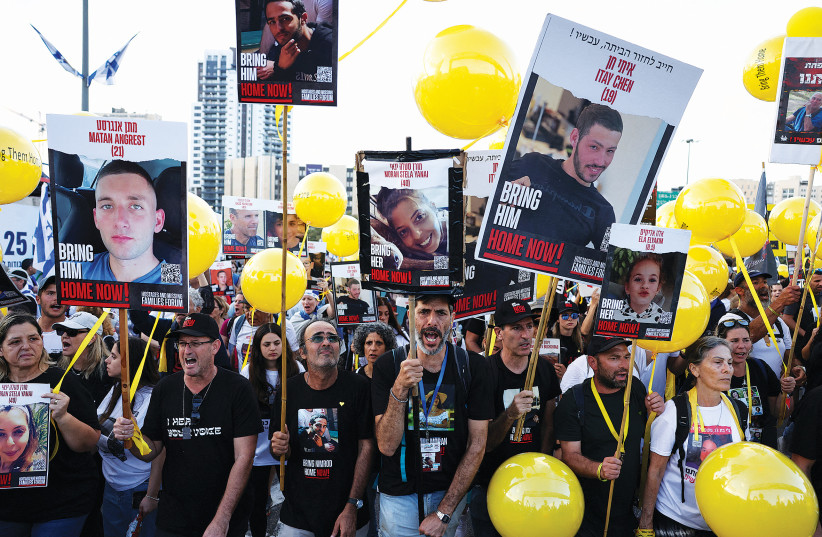Fifty-one days have passed since October 7, the day Israel suffered the harshest terror attack in the country’s history. In this incursion, orchestrated by Hamas, over 1200 were killed, and at least 240 were kidnapped into Gaza. Among them is German Israeli Itay Svirsky, a 38-year-old from Tel Aviv who was visiting his family in Kibbutz Be’eri on that weekend.
For more stories from The Media Line go to themedialine.org
Last week, Israel and Hamas agreed to a four-day ceasefire in which Hamas would release 50 hostages, mostly children, women, and the elderly while Israel would free 150 Palestinian prisoners from Israeli jails. Mainly women and minors who were arrested after committing or attempting to commit attacks in Israel.
Families ripped apart by Hamas
Ofir Weinberg, the cousin of Itay Svirsky, spoke to The Media Line and said that while she is very happy for the children and women who are returning home, she is scared that after these releases, the world will forget about the remaining hostages.
“It scares me a little bit that the world will forget because is very thrilling and exciting to see kids and women coming back to their homes, to their families. But Itay also has a family that waits for him,” she said.
However, she is committed to continuing in her quest, together with other families of hostages to bring each of them back from captivity. “He is not going to be back in the upcoming four days, but we need to keep fighting for this and for everyone that is still there,” Weinberg added.

She described her day-to-day feelings since the beginning of the war. “I know that October 7 seems like a long time ago and so much has happened since then. But I’m living this nightmare every single day,” she noted.
“Itay is a man of peace, love, of people. He loves to talk about life for hours. He can go on and on. He is a really calm and modest man,” said Weinberg, adding that Svirsky works as a mental coach focusing on making people’s lives better.
During the October 7 terror attack, both Svirsky’s parents, Orit and Rafi Svirsky, were murdered, and he was kidnapped. He, as well as his parents, managed to speak with their family before the terrorists reached their homes.
Orit, Svirsky’s mother, wrote a message to her family saying, “Pray for us,” and then another message with a red heart emoji was the last sign of life.
“Whoever hears this can only just imagine what one feels when you sit in your house, and you get those messages from your family, and you feel that you don’t have any power in you. You feel helpless, powerless, you know that your family is being murdered in those moments,” said Weinberg with tears in her eyes.
The family was only notified about Orit and Rafi’s murder 10 days after the attack when their bodies were identified. The same day, the Israeli government confirmed Svirsky’s kidnapping, providing them no additional information other than that his phone was tracked down to be in Gaza.
Weinberg and Svirsky’s grandmother, Aviva Sela, 97, who is also a founder of Kibbutz Be’eri, survived the attack. But she lost her daughter, her best friend and caretaker Gracie Cabrera, a Philippines national who was murdered and mutilated, making it very hard to identify her body, and a loving grandson is still in captivity in Gaza.
